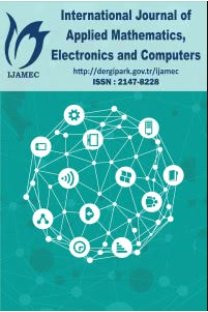Automatic Voice and Speech Recognition System for the German Language with Deep Learning Methods
In our age, technological developments are accompanied by certain problems associated with them. Security takes the first place amongst such kind of problems. In particular, such biometric systems as authentication constitute the significant fraction of the security matters. This is because sound recordings having connection with the various crimes are required to be analyzed for forensic purposes. Authentication systems necessitate transmission, design and classification of biometric data in a secure manner. In this study, analysis of German language employed in the economy, industry and trade in a wide spread manner, has been performed. In the same vein, the aim was to actualize automatic voice and speech recognition system using Mel Frequency Cepstral Coefficients (MFCC), MelFrequency Discrete Wavelet Coefficients (MFDWC) and Linear. Prediction Cepstral Coefficient (LPCC) taking German sound forms and properties into consideration. Approximately 2658 German voice samples of words and clauses with differing lengths have been collected from 50 males and 50 females. Features of these voice samples have been obtained using wavelet transform. Feature vectors of the voice samples obtained have been trained with such methods as Boltzmann Machines and Deep Belief Networks. In the test phase, owner of a given voice sample has been identified taking the trained voice samples into consideration. Results and performances of the algorithms employed in the study for classification have been also demonstrated in a comparative manner.
Keywords:
Boltzmann Machines,
___
- [1] Douglas, Reynold , Walter, Andrews and Joseph, Campbell etc., “The SuperSID Project: Exploiting High-Level Information for High-Accuracy Speaker Recognition”, In.Proc. ICASSP, Hong Kong, p.784-787, 2003.
- [2] Douglas, Reynolds , Thomas, Quatieri and Robert, Dunn, “Speaker Vrification using Adapted Gaussian Mixture Models”, Digital Signal Processing 10, p.19-41, 2000.
- [3] Edmondo, Trentin and Marko, Gori, “A survey of hybrid ANN/HMM models for automatic speech recognition”, Elsevier Neurocomputing 37, p.91-126, 2001.
- [4] Keiichi, Tokuda , Heiga, Zen and Alan, Black, “An HMM-Based Speech Synthesis System Applied to English”, Proc.of 2002 IEEE SSW, p.227-230, 2012.
- [5] Lihang, Li, Dongqing, Chen and Sarang, Lakare etc, “Image segmentation approach to extract colon lümen through colonic material taggng and hidden markov random field model for virtual colonoskopy”, Medical Imaging, 2002.
- [6] Lindasalwa, Muda and Mumtaj, Began, “Voice Recognition Algorithms using Mel Frequency Cepstral Coefficient (MFCC) and Dynamic Time Warping (DTW) Techniques”, Journal Computing, vol.2, issue 3,p.138-143, ISBN 2151-9617, 2010.
- ISSN: 2147-8228
- Yayın Aralığı: Yılda 4 Sayı
- Başlangıç: 2013
- Yayıncı: Selçuk Üniversitesi
Sayıdaki Diğer Makaleler
Yunus Santur, Mehmet KARAKÖSE, Erhan Akın
Alyaa MAHDİ, Ahmet ELBİR, Fethullah KARABİBER
Ayşen ÇETİN KARDEŞLER, Meriç ÇETİN, Selami BEYHAN
Gokhan BAYAR, Tugay Kadir OLGUNER
Begüm KORUNUR ENGİZ, Çetin KURNAZ
Gökçen Çetinel, Lukman ÇERKEZİ
Pulse Oximeter Manufacturing & Wireless Telemetry for Ventilation Oxygen Support
